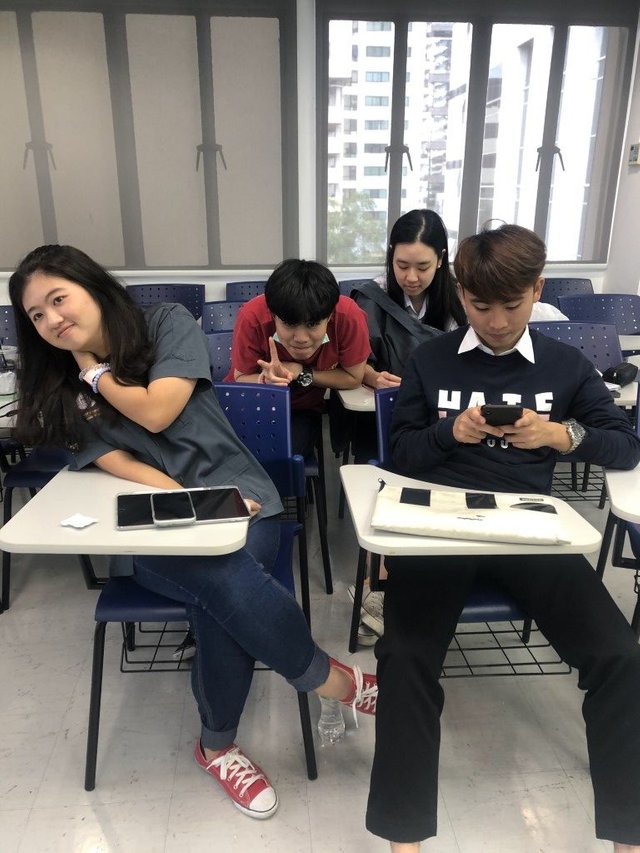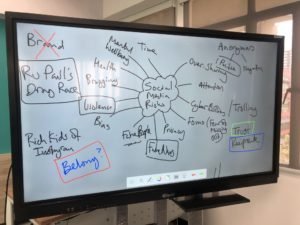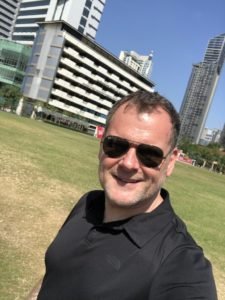
While we have been discussing the use of social media as a tool to facilitate social contact in a positive way, we spent this morning thinking about some of the negative applications of social media. It's not just about giving things away, but it's also about how we control access to our information, who we engage with, and what kind of positive experience we want from our shared interactions?

We started off by doing a brain-storm of the many issues that affect social media use, from privacy and over-sharing, to data mining and fake news. Mapping out the issues like this helped us to switch from one issue to another and think about how they are connected. Are there any possible links between, for example, stress and anxiety and cyber bullying?
Would you give your phone number or birthdate to a stranger in the street? Yet that is what we effectively do online. We override our better judgement in many occasions because we feel that we can trust the service that is being provided. Even when there are major scandals in the news, we still carry on using many apps and platforms, simply because most of our friends and contacts are also using them, and it would potentially cut us off from our networks if we did.

Likewise, we asked questions about how we manage and develop our identity on line and if it is appropriate to hide behind an anonymous profile? The answer was no, if we are intent on trolling or cyber-bullying someone; and yes, if we are exploring and connecting with other people in a way that expands our social experience but which might be frowned upon in our real-world communities because other people hold specific views that are fixed and less open to change.
A useful test that we identified was the extent to which our social media use helps us to feel that we belong and that we are part of an online or virtual community. If our interests, shared occurrences and posts are not being reciprocated and acknowledged, then why would we attempt to remain part of any online network?
It's just like this in real life, really. Social media is not much different, only the community that we connect with and develop our stronger ties with, might be international and global, and our communities that we explore through our weaker ties might be more local. Or is it the other way around? It's hard to tell any more.
Posted from my blog with SteemPress : https://decentered.co.uk/eighth-day-teaching-social-media-classes-at-swu-bangkok/